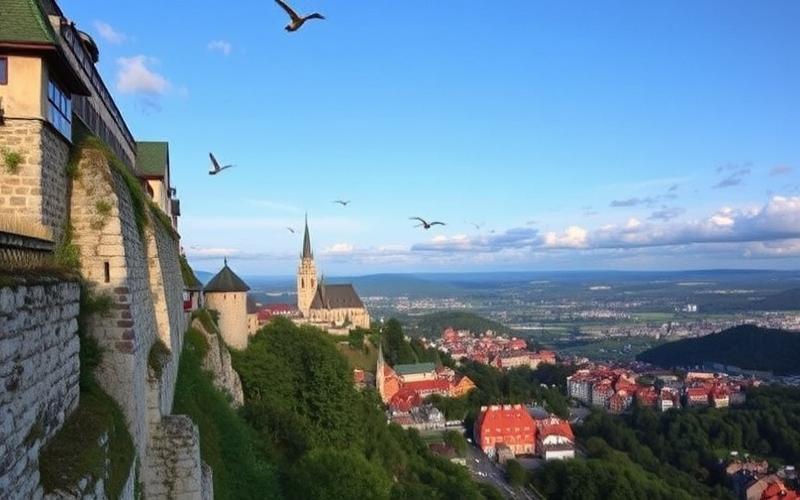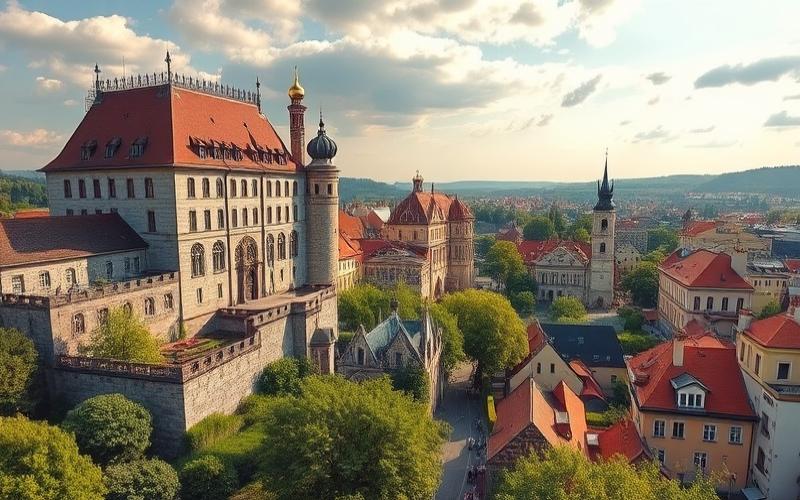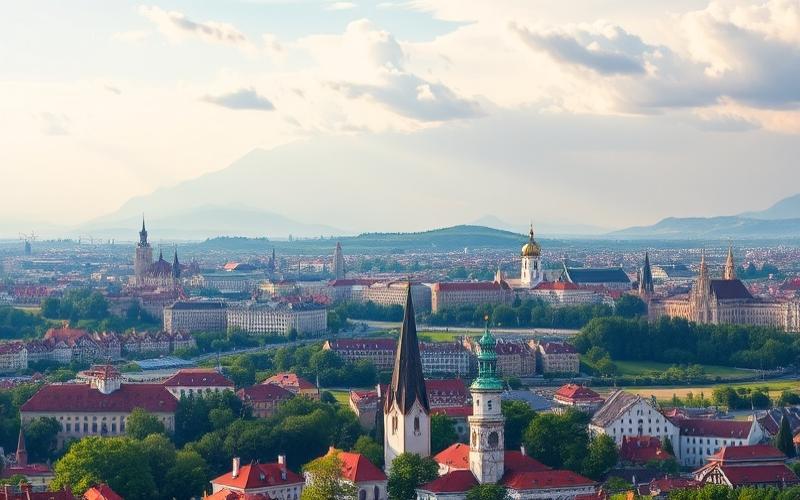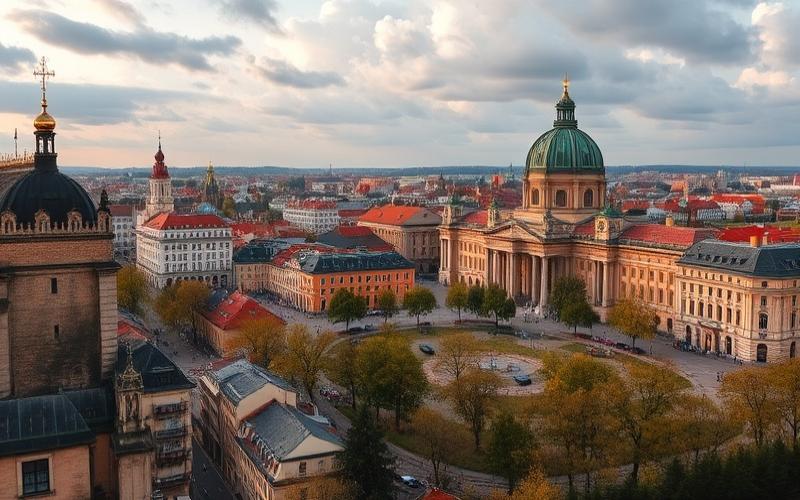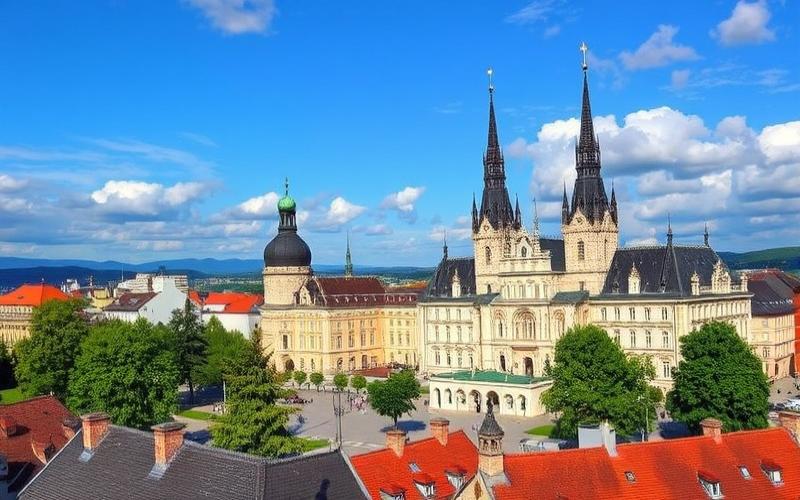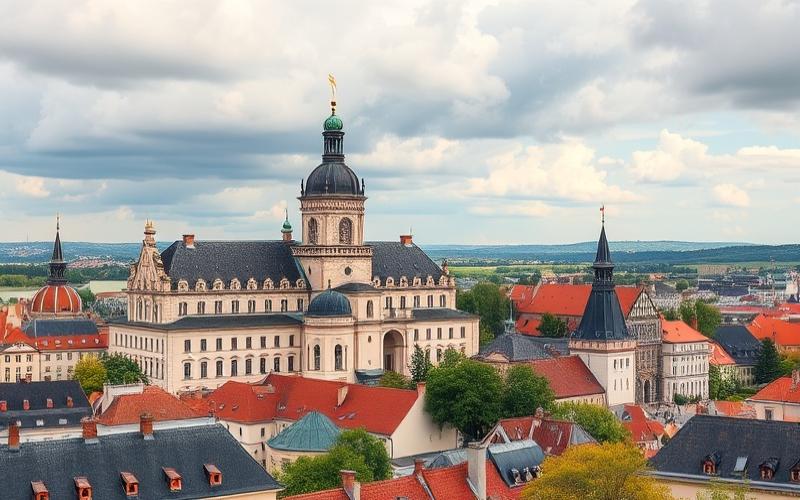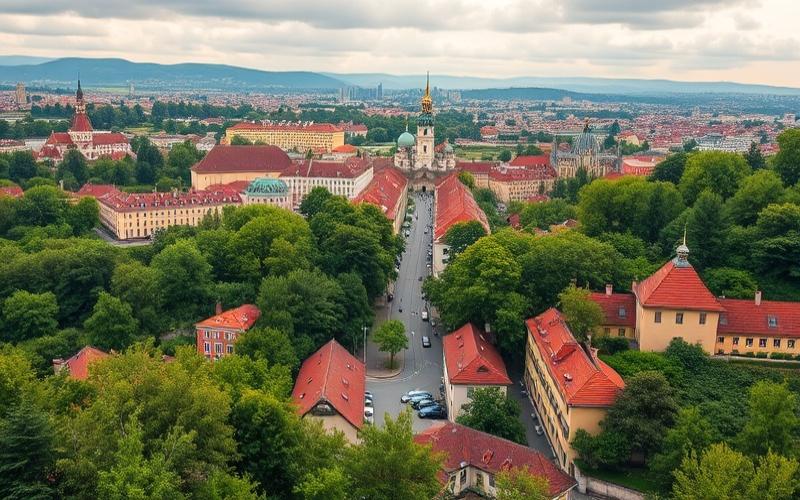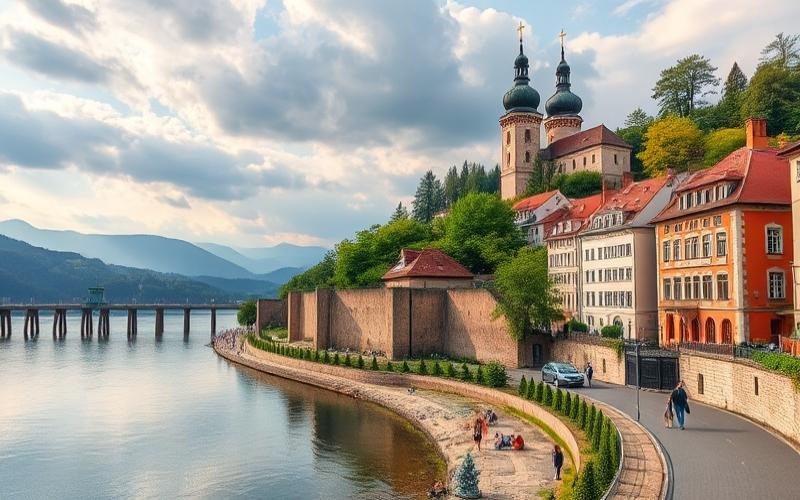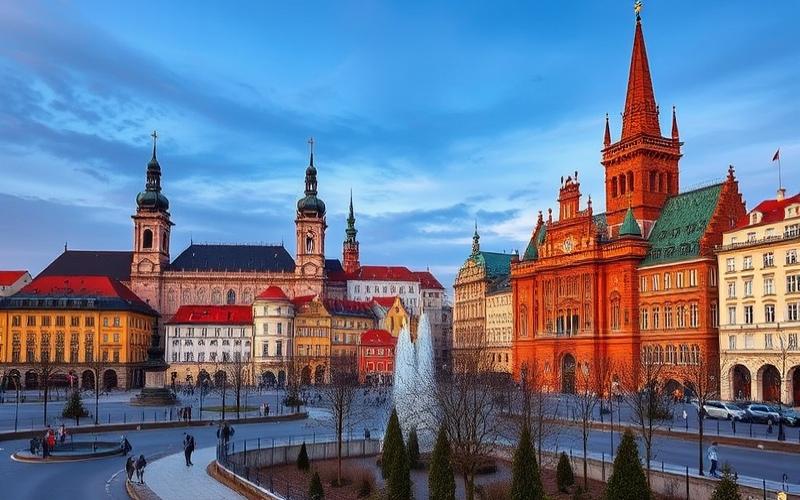
 Published on and written by Cyril Jarnias
Published on and written by Cyril Jarnias
Obtaining a Polish passport may seem challenging for those unfamiliar with the country’s administrative procedures.
Whether you’re a Polish citizen by birth, a descendant of Poles, or considering acquiring citizenship through other means, our detailed guide will provide all essential information to navigate the complex process smoothly.
From explaining required documents, such as KF (Kindred Verification), to understanding timelines and associated fees, each step is carefully detailed to ensure a seamless, stress-free experience.
Get ready to discover how to simplify this administrative journey and make Poland your gateway to Europe.
Introduction to the Polish Passport Application Process
The Polish passport is an essential document for any Polish citizen wishing to travel abroad, prove their citizenship or identity, and access numerous international rights. Possessing this document is particularly important as it facilitates visa-free access to many countries, enhances legal security during travel, and serves as official proof of Polish nationality.
The legal framework for passport issuance in Poland is strictly defined by law. Every Polish citizen has the right to obtain a passport unless limitations or deprivation of this right are provided by national legislation. The passport remains the property of the Republic of Poland throughout its validity period.
Competent Institutions for Processing Applications:
- Voivodes (regional administrative authorities) are responsible for issuing passports in Poland.
- Polish consulates abroad handle applications from citizens residing outside national territory.
Main Steps for Applying for a Passport in Poland:
- Scheduling an appointment with the passport office or relevant consulate.
- Submitting the application in person, accompanied by required documents (form, ID photo, proof of nationality, etc.).
- Paying processing fees.
- Collecting the passport at the application submission point once processing is complete.
Generally Required Documents:
- Properly completed passport application form.
- ID photo meeting standards.
- Polish civil status document (birth certificate, marriage certificate if name changed).
- Previous passport, if exists.
- Proof of eligibility for fee reduction, if applicable.
Types of Polish Passports and Main Differences:
| Passport Type | Description | Validity Period | Main Features |
|---|---|---|---|
| Ordinary Passport | Issued to most citizens for international travel | 10 years (5 years for minors) | Common use |
| Temporary Passport | Issued urgently or in special circumstances (loss, theft, exceptional situations) | Maximum 12 months | Expedited procedure, reduced validity |
| Diplomatic Passport | Reserved for diplomats and certain official state representatives | Varies by function | Special status, immunities |
| Service Passport | For state officials on official missions, excluding diplomats | Varies by mission | Restricted use |
Key Points to Remember:
- The Polish passport is both a travel document and proof of citizenship.
- Applications must always be submitted in person.
- Regional administrative authorities and consulates are the main points of contact for procedures.
- Fee reductions exist for certain groups (students, disabled persons, etc.).
Important Information:
- The passport cannot be mailed abroad; it must be collected in person.
- For individuals without a PESEL number or with particular family situations, additional documents may be required.
Good to Know:
The Polish passport provides privileged access to 184 countries without a visa or with visa on arrival, making it one of the most powerful passports in the world.
Good to Know:
To obtain a Polish passport, eligible citizens and residents must follow a specific legal framework defining required documents and submit their application to competent structures like town halls or the consulate; there are various types of passports, including for adults, children, and diplomatic purposes, each with its own characteristics and requirements.
Documents Required to Obtain a Passport in Poland
List of mandatory documents for a passport application in Poland:
- Properly completed passport application form (available online or at competent offices)
- Polish ID card or birth certificate
- Two recent biometric photographs meeting official standards
- Proof of passport fee payment
- Certificate confirming Polish citizenship (if first application)
- Proof of address or residence (e.g., residence certificate, lease)
- Previous passport (for renewal) or declaration of loss/theft if applicable
- For married persons: marriage certificate (if applicable)
- For minor children: family record book or translated birth certificates, written authorization from both parents or legal guardian
Additional Documents That May Be Required:
- Official translation of foreign civil status documents
- Proof of parentage or adoption (for minors or special situations)
- Criminal record (in exceptional cases)
- School certificate (for school-age minors)
- Proof of stable income and housing (particularly for certain naturalization cases)
Specific Conditions for Minors:
- Mandatory presence of the child and both parents (or legal guardian) during application submission
- Written authorization from both parents or legal guardian
- Family record book or child’s birth certificate
- Parents’ or guardian’s ID
Passport Renewal or Loss:
| Situation | Specific Documents to Provide |
|---|---|
| Renewal | Old passport, proof of address, proof of payment |
| Loss/Theft | Police report of loss/theft, proof of identity, proof of payment |
Average Processing Times:
Standard processing for a passport application in Poland typically takes between 4 and 10 weeks after complete file submission and biometric fingerprinting.
For applications abroad (embassy/consulate), processing times may be slightly longer depending on the period and location.
Useful Links and Official Resources:
- Passport application form and official document list: https://www.gov.pl/web/algerie/taxes-consulaires
- Information on consular procedures and required proofs: https://pl.ambafrance.org/Carte-d-identite-et-passeport
- Additional information on citizenship and civil status documents: https://veles-club.com/fr/blog/poland-citizenship-2025-qualify-naturalisation-marriage-descent
Good to Know:
Make sure to have your ID card or birth certificate, two compliant photos, payment proofs, and if necessary, proof of residence; for minors, a birth certificate is required. For renewal or in case of loss, plan for additional documents and consult official online resources for forms and timelines.
Always check the updated document list and official forms on embassy, consulate, or Polish government websites before any procedure.
Cost and Processing Times for Polish Passports
| Passport Type | Standard Fee (PLN) | Reduced Fee (PLN) | Eligible for Reduced Fee |
|---|---|---|---|
| Standard Passport (adult) | 140 | 70 | Students, seniors, large families* |
| Minor’s Passport | 30–60 | — | — |
| Temporary Passport | 30 | — | — |
*Reduced fees generally apply to students, retirees, disabled persons, large families, and certain social aid recipients.
Payment Methods:
- Payments are mainly in Polish zloty (PLN), by bank card or cash at competent offices.
- Some consulates may accept bank transfers or electronic stamps, especially for procedures abroad.
- Since 2025, electronic stamp payment has been generalized for certain consular procedures; purchase is made online before the appointment, in euros or zlotys depending on location.
Processing Times:
- Standard procedure: Average 30 business days, but may extend during peak periods (summer holidays, year-end).
- Expedited procedure: 7 to 14 business days, under conditions (properly justified urgency, professional or medical reasons, etc.).
- Express procedure: 2 to 3 business days, only for exceptional cases (medical emergency, death of a relative).
- Times may vary depending on the time of year and location (in Poland or abroad).
| Processing Type | Timeline | Additional Fees |
|---|---|---|
| Standard | 30 business days | None |
| Expedited | 7–14 business days | +100 PLN approximately |
| Express | 2–3 business days | +200 PLN approximately |
Express Processing Options:
- Available only for serious reasons and upon presentation of proof.
- Express option fees are in addition to the standard passport fee.
In Case of Delay or Loss:
- If the passport is not ready within the announced timeframe, contact the issuing office for a certificate or case tracking.
- In case of loss or theft, you must:
- Immediately report the loss to local police and the issuing office.
- Apply for a temporary passport if urgent travel is necessary.
- Pay additional fees for passport reissuance and provide proof of loss/theft report.
- Consulates offer specific procedures for quick issuance of a provisional travel document.
Good to Know:
The cost of a Polish passport is 140 zlotys, with reduced rates for students and seniors; processing times range from 2 to 4 weeks, with an express option available for an additional fee.
Key Points: Passport payment is made in zlotys, with reduced fees for certain categories, and expedited procedures exist for an additional fee. In case of loss or delay, emergency procedures and temporary passports are available.
For any special situation, it is recommended to consult the issuing office or competent Polish consulate.
Advantages of Holding a Polish Passport
Concrete and Tangible Advantages of the Polish Passport
Visa-Free Travel
The Polish passport ranks among the most powerful in the world, holding 7th place globally in 2025 according to several rankings.
It allows visa-free travel or visa on arrival to up to 188 countries.
Destinations include the Schengen Area, United Kingdom, Canada, Australia, Japan, South Korea, Brazil, Mexico, and most major world economies.
| Country/Zone | Visa-Free Access for Poles |
|---|---|
| Schengen (27 countries) | Yes |
| United Kingdom | Yes |
| United States | eTA/ESTA required |
| Canada | Yes |
| Australia/New Zealand | eTA required |
| Japan/South Korea | Yes |
| Brazil/Mexico | Yes |
Rights Linked to European Citizenship
Free Movement: Right to live, work, and study in any European Union country without heavy formalities.
Automatic Diploma Recognition and facilitated access to higher education in all member countries.
Access to the European Single Market: business creation, employment, or investment possible without additional procedures.
Services and Consular Protections
Access to Polish consular assistance worldwide.
In the absence of Polish representation in a third country, possibility to benefit from consular assistance from any other EU member state.
Social and Economic Benefits
Education: Access to Polish public schools and universities at national rates.
Healthcare: Access to the Polish healthcare system and, via the European Health Insurance Card, to care in the EU.
Social Protection: Benefit from Polish social security schemes (family allowances, pension, unemployment…).
Testimonials and Statistics
In 2025, Poland even surpasses countries like the United States and Canada for travel freedom.
Thousands of people of Polish origin worldwide seek to obtain this passport to benefit from its power and the security it offers internationally.
According to rankings, the Polish passport is preferred for its stability, professional opportunities, and the legal protection provided by the European Union.
Summary of Main Benefits
- Exceptional international mobility
- Full European citizen rights
- Extended consular protection
- Strong social, educational, and economic advantages
Holding a Polish passport means accessing one of the most sought-after citizenship statuses in Europe, combining freedom of movement, security, and future prospects.
Good to Know:
A Polish passport offers the possibility to travel visa-free to over 180 countries, while citizens benefit from European rights, such as free work and residence in the EU, as well as global consular services and access to healthcare and education in Poland.
Disclaimer: The information provided on this website is for informational purposes only and does not constitute financial, legal, or professional advice. We encourage you to consult qualified experts before making any investment, real estate, or expatriation decisions. Although we strive to maintain up-to-date and accurate information, we do not guarantee the completeness, accuracy, or timeliness of the proposed content. As investment and expatriation involve risks, we disclaim any liability for potential losses or damages arising from the use of this site. Your use of this site confirms your acceptance of these terms and your understanding of the associated risks.

